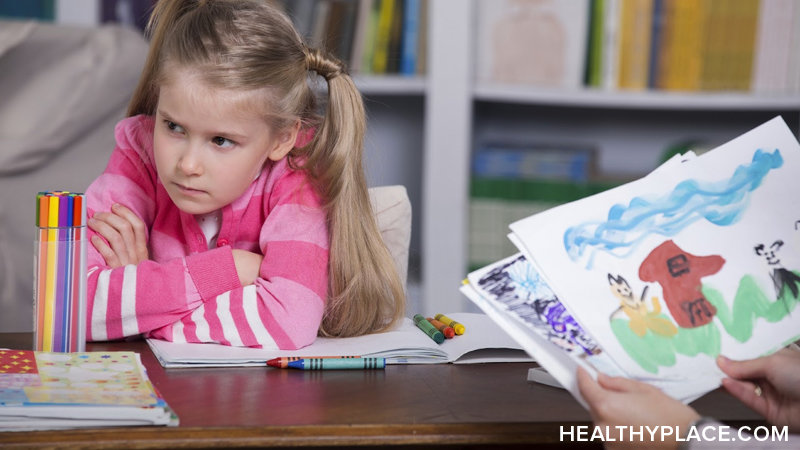How Does Child Therapy Address Anger Management?

Child therapy can address anger management to help your son or daughter. While parents can work with their child at home to reduce anger issues, therapy is often needed, too. As a parent, how do you know when child therapy is needed for anger management?
Feeling angry isn’t a problem, even for kids. Anger is just another human emotion that emerges when a child’s needs are unmet or thwarted. When someone or something threatens their sense of wellbeing, such as feeling accepted, safe, and physically and emotionally healthy, kids frequently react in anger. Healthy anger is in proportion to the circumstances that cause it, so children can manage it appropriately with a bit of help from parents or teachers. Anger can be positive when it motivates someone to change a situation or even themselves.
Anger becomes a problem for kids when it:
- Is frequent and/or long-lasting
- Is intense
- Disturbs relationships with family and/or school
- Masks other feelings
- Is destructive and harms others
If your child’s anger is spiraling out of control, it may be time to consider child therapy for anger management.
Purpose of Child Therapy for Anger Management
In general, therapists working with kids for anger issues seek to help them manage existing anger and to prevent anger reactions in the future. These are both skills that many children lack but are ones that can be learned and used.
To accomplish these goals, therapists work with kids to help them explore and understand their anger and what triggers it. A child can’t begin to manage their anger if they don’t understand why they feel so angry, even explosive, and don’t know what makes them feel that way.
Therapists also go a bit deeper to uncover whether anything underlies the strong emotion. This looks beyond what the trigger is to determine why that thing elicits such an extreme response. Sometimes, other concerns such as undiagnosed ADHD, anxiety, autism spectrum disorder (ASD), or learning disabilities are highly frustrating and overwhelming, causing kids to react in anger.
When children start anger management counseling, the therapist begins to understand them by listening and determining what, exactly, they’re communicating through their anger. They use assessment tools to determine how they can help a child with their anger. Some tools they use include:
- Children’s Inventory Anger Game
- Drawings
- Free play
- Self-rating scales where kids rate their anger levels in various situations
Child counseling for anger management isn’t one-size-fits-all. All children are unique, and so is their anger. Therefore, therapy is individualized to help a specific child with their specific anger. This is the case whether the child attends traditional therapy or play therapy.
How Traditional Child Therapy Addresses Anger Management
Also known as talk therapy, this approach involves mostly talking with children on their level, made possible with the use of games and similar activities. A common belief about anger in kids is that angry behavior happens because a child lacks the necessary skills to recognize, monitor, and adjust their emotions and behavior.
Child therapists facilitate anger management by teaching skills and practicing them with the child. These are examples of skills children learn:
- Emotional regulation
- Identifying situations that calm and those that trigger anger, and the ability to use the information to choose healthy settings
- Changing aspects of a situation that can be changed to positively impact emotions
- Identifying and changing thoughts and judgments about a situation and/or their ability to handle it (CBT skills)
- Becoming aware of angry, emotional reactions and modifying responses as they’re happening
These techniques of traditional therapy are proven to be effective. They don’t work for every child, though. Another option is play therapy for anger.
Play Therapy for Anger Management
Play therapy works for a wide variety of children and types of anger. Play is a natural way for a child to communicate. Children lack the verbal skills needed to talk about their inner experiences and often even their experiences in the world around them. Play therapy gets around this obstacle by letting kids communicate through play.
Play therapy techniques for anger allow play therapists to address anger management with children. Kids explore their feelings and reactions, their intense anger, and different ways to handle and change angry feelings in the following ways (a partial list):
- Puppets
- Clay
- Drawing/painting
- Games about anger management
- Music (making music and listening to songs)
- Movies (watching segments of movies to identify anger management techniques)
- Breathing techniques
With play, children can work through inner conflict and address situational conflicts. Then, they are ready to determine ways to manage and rise above their anger.
Child therapy can play a significant role in helping children with anger management so they can be successful at home and at school.
See Also:
APA Reference
Peterson, T.
(2022, January 11). How Does Child Therapy Address Anger Management?, HealthyPlace. Retrieved
on 2026, March 3 from https://www.healthyplace.com/parenting/child-therapy/how-does-child-therapy-address-anger-management



